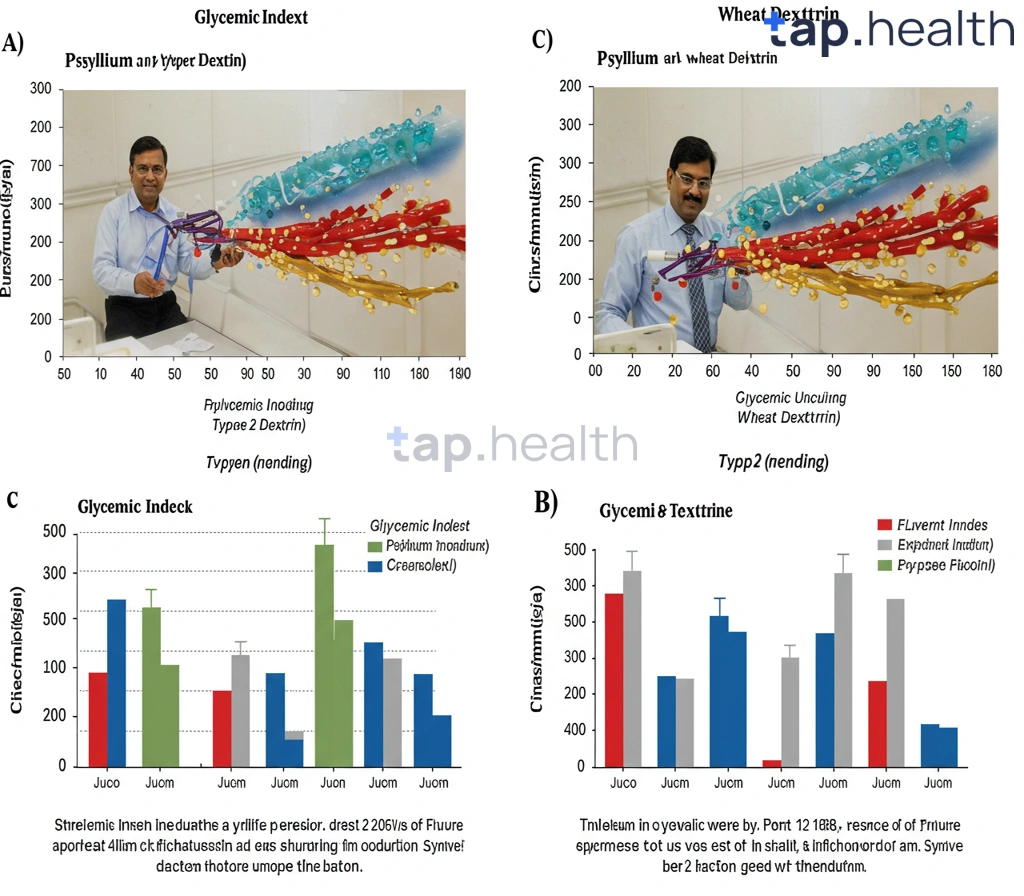Table of Contents
- Genetics of Blood Sugar: What You Need To Know
- How Your Genes Influence Blood Glucose Control
- Understanding the Genetic Factors Affecting Blood Sugar
- Your Genes & Blood Sugar: A Comprehensive Guide
- Unlocking the Secrets: How Genes Impact Blood Sugar Regulation
- Frequently Asked Questions
- References
Ever wonder why some people seem to effortlessly maintain healthy blood sugar levels while others struggle? It’s not just about diet and exercise; a significant piece of the puzzle lies in understanding how genes impact blood sugar control in healthy individuals. This isn’t about blaming your genetics, but rather about empowering yourself with knowledge. We’ll explore the fascinating world of genetic predispositions to insulin resistance and glucose metabolism, revealing how your DNA might influence your body’s ability to regulate blood sugar. Let’s delve into the science behind this crucial aspect of overall health and well-being.
Genetics of Blood Sugar: What You Need To Know
Understanding how our genes influence blood sugar control is crucial, especially in regions like India and other tropical countries where diabetes prevalence is high. Research shows a strong link between lifestyle and the disease; for instance, daily consumption of sugary beverages raises diabetes risk by 26%. However, genetic predisposition plays a significant role, even in seemingly healthy individuals. This means that some people are genetically more susceptible to developing high blood sugar levels and consequently, type 2 diabetes, than others.
Understanding the Genetic Factors
Several genes influence how our bodies process glucose. These genes affect insulin production, insulin sensitivity (how well your cells respond to insulin), and glucose metabolism. Variations in these genes can lead to impaired glucose tolerance, a precursor to type 2 diabetes. Furthermore, genetic factors can interact with environmental factors like diet and lifestyle to significantly increase the risk of developing diabetes. In tropical countries, where diets often include high carbohydrate foods, this interplay becomes even more critical.
Practical Implications & Regional Considerations
Knowing your family history of diabetes is a key first step. Individuals with a strong family history should be more vigilant about their Blood Sugar Levels and adopt a proactive approach to managing their health. This includes focusing on a balanced diet low in processed sugars and refined carbohydrates—a crucial aspect of diabetes prevention, especially in regions where sugary drinks are common. Regular exercise and maintaining a healthy weight are also vitally important. Consulting a healthcare professional for regular check-ups and personalized advice is strongly recommended for all individuals, but especially those living in high-risk regions. Early detection and intervention are key to managing blood sugar and preventing the long-term complications of diabetes. Understanding the reasons behind sudden increases can also be helpful, so learning more about Why Blood Sugar Spikes in the Morning and How to Manage Them could be beneficial.
How Your Genes Influence Blood Glucose Control
Understanding how our genes affect blood sugar levels is crucial, especially considering that a significant portion of the global diabetes population falls within the 20-64 age group (61%, according to the International Diabetes Federation). This highlights the importance of proactive health management, particularly in regions like India and other tropical countries where diabetes prevalence is high. Genetic predisposition plays a major role in determining an individual’s susceptibility to developing conditions like type 2 diabetes, impacting how efficiently their body processes glucose.
Genetic Variations and Blood Sugar
Several genes influence glucose metabolism, affecting insulin production, insulin sensitivity, and glucose uptake by cells. Variations in these genes can lead to impaired glucose tolerance or increased risk of hyperglycemia (high blood sugar), even in seemingly healthy individuals. For instance, variations in genes related to insulin secretion can lead to less insulin being produced, while variations in genes impacting insulin receptors can result in reduced insulin sensitivity. This means that even with a healthy diet and lifestyle, some individuals may struggle to maintain optimal blood sugar levels due to their genetic makeup. This is particularly relevant in populations with a higher inherent genetic predisposition to diabetes.
Understanding Your Risk & Proactive Steps
While genes play a significant role, lifestyle choices still hold immense power. Maintaining a healthy weight, engaging in regular physical activity, and following a balanced diet rich in fruits, vegetables, and whole grains are crucial steps in managing blood sugar, regardless of genetic predisposition. In India and other tropical countries, incorporating traditional dietary practices known to support blood sugar control can be incredibly beneficial. Regular check-ups and proactive monitoring of blood glucose levels are essential, especially if you have a family history of diabetes. Seeking advice from a healthcare professional to understand your personal risk profile and develop a tailored management plan is highly recommended. For more information on how to build healthy habits that support blood sugar control, check out our blog: How to Build Habits That Help Control Blood Sugar Levels. Furthermore, exploring dietary options can also play a significant role; learn more about the benefits of fermented foods in Discover How Fermented Foods Help Regulate Blood Glucose Levels.
Understanding the Genetic Factors Affecting Blood Sugar
Maintaining healthy blood sugar levels is crucial, especially in regions like India and other tropical countries where high sugar consumption is prevalent. Did you know that excess sugar consumption increases the risk of developing diabetes by 18%? In India, the average annual per capita sugar consumption is a staggering 20 kg, highlighting the importance of understanding how genetics play a role in blood sugar control, even in seemingly healthy individuals.
The Role of Genes in Glucose Metabolism
Our genes provide the blueprint for how our bodies process glucose, the primary sugar in our bloodstream. Variations in specific genes can influence insulin sensitivity, glucose uptake by cells, and the overall efficiency of glucose metabolism. These genetic variations can make some individuals more predisposed to developing insulin resistance or impaired glucose tolerance, even without significant lifestyle factors like excessive sugar intake. Understanding your genetic predisposition can be incredibly beneficial in proactive health management. This is further emphasized by considering how genetics influence your nutritional needs.
Identifying Genetic Risk Factors
While not all genetic factors are fully understood, several genes are known to be associated with increased risk of type 2 diabetes. Many individuals unknowingly carry genes that affect their blood sugar regulation. This knowledge can empower people to make informed lifestyle choices, such as adopting a balanced diet low in refined sugars and focusing on regular physical activity. This becomes especially crucial in regions with high sugar consumption like India. Managing weight is also key, as explained in Weight Loss and Blood Sugar Levels: Simple Connection Explained.
Taking Control: Practical Steps for Healthy Blood Sugar
Regardless of your genetic predisposition, proactive steps can significantly impact your blood sugar levels. Focus on a diet rich in fiber and complex carbohydrates, incorporate regular exercise into your routine, and maintain a healthy weight. Consulting a healthcare professional for personalized advice and genetic testing, if available, is strongly recommended for individuals in high-risk groups or those with a family history of diabetes. This is particularly vital given the high diabetes prevalence in India and other tropical countries.
Your Genes & Blood Sugar: A Comprehensive Guide
Understanding how your genes influence blood sugar control is crucial, especially in diverse populations like those in India and tropical countries. Maintaining healthy blood sugar levels is vital for preventing long-term health complications such as diabetes. Ideally, pre-meal blood sugar should be between 80–130 mg/dL, and post-meal levels should remain below 180 mg/dL. Genetic variations can significantly impact how your body processes glucose, influencing your susceptibility to high blood sugar. For example, is a 100 mg/dL blood sugar level normal? Is a 100 mg/dL Blood Sugar Level Normal? Comprehensive Guide can help you understand the normal range.
Genetic Factors Influencing Blood Sugar
Several genes play a role in regulating insulin secretion, glucose uptake, and overall glucose metabolism. Variations in these genes can lead to differences in how efficiently your body manages blood sugar. For instance, some genetic variations might make individuals more prone to insulin resistance, a condition where cells don’t respond effectively to insulin, leading to elevated blood sugar levels. This is particularly relevant in populations with a higher prevalence of diabetes. Understanding your family history of diabetes can provide valuable insights into your genetic predisposition.
Lifestyle and Genetic Predisposition
While genetics play a significant role, lifestyle factors are equally important. Even with a genetic predisposition to high blood sugar, maintaining a healthy diet rich in fiber and low in processed sugars, regular exercise, and managing stress can help significantly improve blood sugar control. These lifestyle choices help counteract the negative effects of certain genetic variations. In many Indian and tropical regions, traditional diets often incorporate foods that naturally support blood sugar regulation. However, rapid urbanization and changing dietary habits are altering these traditional patterns. It’s crucial to understand the risks associated with extremely high blood sugar levels. For example, Is 450 Blood Sugar Normal? Understand Risks & Essential Actions discusses the dangers and necessary actions to take.
Taking Control of Your Blood Sugar
Consulting a healthcare professional, particularly a diabetologist, is crucial for personalized guidance. They can conduct necessary tests to assess your individual risk factors and recommend appropriate strategies, considering both your genetic background and lifestyle. Regular monitoring of your blood sugar levels, coupled with proactive lifestyle modifications, can help manage and prevent high blood sugar regardless of your genetic makeup. Early intervention and proactive health management are key to long-term well-being.
Unlocking the Secrets: How Genes Impact Blood Sugar Regulation
Did you know that a staggering 50% of diabetes cases worldwide go undiagnosed? This alarming statistic, highlighted by the International Diabetes Federation, underscores the critical need to understand blood sugar control, especially in regions like India and other tropical countries where diabetes prevalence is high. Understanding the genetic factors influencing blood sugar regulation is a crucial first step.
Genetic Predisposition and Blood Sugar
Our genes play a significant role in how our bodies process glucose. Variations in genes responsible for insulin production, insulin sensitivity, and glucose metabolism can increase an individual’s risk of developing type 2 diabetes, even in the absence of lifestyle factors like obesity or inactivity. Certain gene variants are more prevalent in specific populations, highlighting the importance of regional genetic research. For instance, studies are ongoing to understand how specific genetic markers influence diabetes risk within Indian and Southeast Asian populations.
Beyond Genetics: Lifestyle Matters
While genetics contribute significantly, it’s crucial to remember that they don’t tell the whole story. Lifestyle choices significantly impact blood sugar control. A balanced diet, regular physical activity, and maintaining a healthy weight are crucial for everyone, but especially for those with a family history of diabetes or identified genetic risk factors. In many tropical countries, dietary habits and access to healthcare can significantly influence the manifestation of genetic predispositions. Understanding how specific dietary choices impact blood sugar is vital, and sometimes, even seemingly minor fluctuations can be significant. For example, you might want to read more about the impact of high blood sugar levels like Is 550 Blood Sugar Normal? Decode the Secret to better understand how to manage your sugar intake.
Taking Control: Actionable Steps
Understanding your family history and considering genetic testing (where available and appropriate) can empower you to take proactive steps towards maintaining healthy blood sugar levels. Consult with a healthcare professional, particularly a diabetologist, to discuss your individual risk profile and develop a personalized plan. Early detection and management are key to preventing the serious long-term complications associated with diabetes. Regular check-ups and proactive lifestyle changes are vital in managing your blood sugar effectively, regardless of your genetic predisposition. In India and tropical countries, prioritizing preventative care is crucial in combating the rising incidence of undiagnosed diabetes. Moreover, understanding the connection between blood sugar and other health conditions, such as thyroid health, is crucial. For insights into this connection, see our blog on The Impact of Sugar on Thyroid Health: How to Cut Back.
Frequently Asked Questions
Q1. How do genes influence my blood sugar levels and risk of type 2 diabetes?
Genes play a significant role in how well your body controls blood sugar and your risk of developing type 2 diabetes. Many genes affect insulin production, how your cells use insulin (insulin sensitivity), and glucose metabolism. Variations in these genes can make it harder for your body to process glucose, increasing your diabetes risk.
Q2. Does my family history of diabetes increase my risk?
Yes, a family history of diabetes significantly increases your risk. If your close relatives have diabetes, you’re more likely to inherit gene variations that make you more susceptible.
Q3. What lifestyle changes can I make to manage my blood sugar, even with a genetic predisposition?
Maintaining a healthy lifestyle is crucial, regardless of your genetic predisposition. Focus on a balanced diet low in processed sugars and refined carbohydrates, regular exercise, and maintaining a healthy weight. These habits can help counteract genetic susceptibility.
Q4. How can I find out more about my personal genetic risk for type 2 diabetes?
You can start by discussing your family history with your doctor. Genetic testing is also available, though it’s often best discussed with a healthcare professional to understand the implications and benefits of such testing.
Q5. What are the benefits of early intervention and regular check-ups?
Early detection and management of blood sugar levels are vital. Regular check-ups allow for early identification of any issues, enabling timely interventions to prevent or delay the onset of type 2 diabetes and its long-term complications.
References
- A Practical Guide to Integrated Type 2 Diabetes Care: https://www.hse.ie/eng/services/list/2/primarycare/east-coast-diabetes-service/management-of-type-2-diabetes/diabetes-and-pregnancy/icgp-guide-to-integrated-type-2.pdf
- Understanding Type 2 Diabetes: https://professional.diabetes.org/sites/default/files/media/ada-factsheet-understandingdiabetes.pdf




